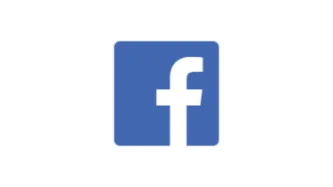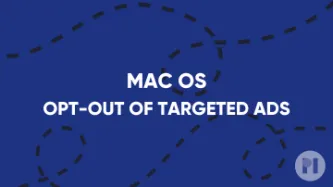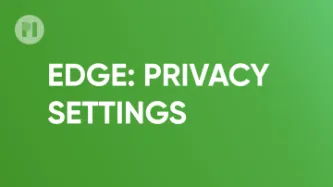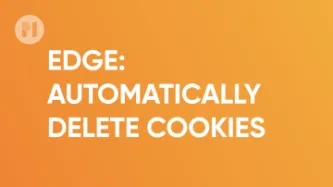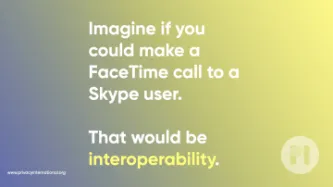Search
Content type: Examples
A security flaw in the mandatory "Diksha" app operated by the Education Ministry, which became an important tool for giving students access to coursework while at home during the pandemic, exposed the data of millions of Indian students and teachers for more than a year when a cloud server hosted on Microsoft Azure was left unprotected. In 2022, Human Rights Watch found that Diksha was able to track students location, and shared data with Google, which indexed more than 100 files from the…
Content type: Long Read
On 18th January, it was announced that end-to-end encrypted iCloud services, Advanced Data Protection, would be offered to Apple users globally.The offer of such level of security globally, while overdue, is a key step to ensuring trust and confidence in today’s world. There are too many threats to our data and our rights. Twelve years ago, we called on Apple to encrypt iCloud storage for users all around the world.Why this is importantWhile privacy and security is often portrayed as opposite…
Content type: Report
Introduction
Several policy initiatives are in progress at the EU level. They seek to address the sustainability of connected devices such as smartphones, tablets and smart speakers. While initiatives to extend the useful life of hardware are important, software must not be ignored. Almost any digital device with which we interact today relies on software to function, which acts as a set of instructions that tells the hardware what to do. From smart thermostats to smart speakers, to our…
Content type: Long Read
Imagine your performance at work was assessed directly from the amount of e-mails sent, the amount of time consumed editing a document, or the time spent in meetings or even moving your mouse. This may sound ludicrous but your boss might be doing exactly that. There are more and more stories emerging of people being called into meetings to justify gaps in their work only to find out their boss had been watching them work without their knowledge.
The Covid-19 global pandemic has reshuffled the…
Content type: Key Resources
The first step when looking at technology is to find basic information about it - to define and categorise it. Looking at the Wikipedia page of a given technology is often a good starting point and will help you clarify what is implied within a technology (for example for Facial recognition). This is particularly useful when there is no specific technology that is mentioned in the partnership or when you are looking at a tender. You might also want to check the company’s marketing materials to…
Content type: Long Read
This piece is a part of a collection of research that demonstrates how data-intensive systems that are built to deliver reproductive and maternal healthcare are not adequately prioritising equality and privacy.
Digital health apps of all kinds are being used by people to better understand their bodies, their fertility, and to access health information. But there are concerns that the information people both knowingly and unknowing provide to the app, which can be very personal health…
Content type: Guide step
The information you (consciously or not) share with Telegram can be very revealing. It can also be (mis)interpreted by government agencies and used to profile individuals. Once installed on a device, depending on your settings, the Telegram app may have access to information such as your location, contact information and media stored on the same device. All of this data can be potentially be accessed remotely using cloud extraction technology.
Your Telegram app generates a lot of data that can…
Content type: Guide step
The information you (consciously or not) share with Facebook can be very revealing. It can also be (mis)interpreted by government agencies and used to profile individuals. Once installed on a device, depending on your settings, the Facebook app may have access to information such as your location, contact information and media stored on the same device. All of this data can be potentially be accessed remotely using cloud extraction technology.
Your Facebook app generates a lot of data that can…
Content type: Guide step
The information you share on WhatsApp can be very revealing. Once installed on a device, the app potentially has access to information such as your location, contact information, and media stored on the same device.
Your WhatsApp app generates a lot of data that can also be stored on your device and elsewhere. It’s important for you to be able to understand the types of data that apps like WhatsApp generate. Government agencies may seek access to this data through at least two routes: they…
Content type: Long Read
For over 20 years with the start of the first use of ICTs in the 1990s, we have seen a digital revolution in the health sector. The Covid-19 pandemic significantly accelerated the digitalisation of the health sector, and it illustrates how fast this uptake can be and what opportunities can emerge; but also, importantly, the risks that it involves.
As we've said many times before, whilst technologies can be part of the solution to tackle some socio-economic and political challenges facing our…
Content type: Explainer
With more and more connected devices around us, the chance that you've been hit by an update notification is high. But what do these software updates do? How do they actually work, and why are they important?
Hardware and Software
Modern electronic devices require two main parts to function: the hardware and the software. The hardware usually refers to physical electronic pieces inside a device (usually a collection of microchips, logic gates and specialised processing chips, such as those to…
Content type: Advocacy
Our environment is increasingly populated by devices connected to the Internet, from computers and mobile phones to sound systems and TVs to fridges, kettles, toys, or domestic alarms. There has been research into the negative safety and privacy impacts of inadequate security provided by the software in such devices (such as the creation of large scale botnets). This is also the case with outdated security, a risk enabled by software support periods that are shorter than a product’s usable life…
Content type: News & Analysis
As Amnesty International and Forbidden Stories continue to publish crucial information about the potential targets of NSO Group’s spyware, we know this much already: something needs to be done.
But what exactly needs to be done is less obvious. Even though this is not the first time that the world has learned about major abuses by the surveillance industry (indeed, it’s not even the first time this month), it’s difficult to know what needs to change.
So how can the proliferation and use of…
Content type: Long Read
One of the most exciting aspects of being a campaigning organisation today is developing new ways to work with people. We enjoy devising and testing new ways to reach and engage with people, hear their concerns, and channel their voices towards our shared adversaries.
It's also an exciting challenge to undertake all of this while protecting the people you are working with. This also means working to protect people's data.
At PI we think hard on this, and struggle openly in many of the right…
Content type: News & Analysis
This blog post by Coding Rights was originally published in Portuguese at: https://tinyurl.com/mediumcodingrightsTransID. It was written by Mariah Rafaela Silva and Joana Varon and translated by Erly Guedes. Illustration was produced by Clarote.On the International Transgender Day of Visibility, Mariah Rafaela Silva and Joana Varon authors of the report “Facial recognition in the public sector and trans identities: techno-politics of control, surveillance and threats to gender diversity…
Content type: Guide step
Opt out of targeted ads
We have written before about the risks that targeted advertisements pose in regards to your digital privacy. To opt out of targeted ads on Windows, open the Start menu, go to Settings > Privacy > General, and disable all options (Fig. 1).
Content type: Guide step
Cómo desactivar los anuncios personalizados
Ya hemos escrito antes sobre los riesgos que suponen los anuncios personalizados para tu privacidad digital. Para cancelar los anuncios personalizados en Windows, abre el menú Inicio, ve a Configuración > Privacidad > General y desactiva todas las opciones (Fig. 1).
Content type: Guide step
uBlock Origin (que no debe confundirse con uBlock, que es un proyecto diferente) es un bloqueador de anuncios independiente y de código abierto que utiliza una lista depurada de servidores, y evita que tu navegador se conecte a estos servidores para mostrarte anuncios.
Nota: En el mercado hay muchos bloqueadores de anuncios y puedes ensayar alternativas. Al utilizar un bloqueador de anuncios independiente, de código abierto y gratuito, es más probable que evites usar productos con conflictos…
Content type: Guide step
Ad Blockers aim to prevent your browser from connecting to Ad servers and loading ads on webpages you are visiting. They can also block some parts of webpages that likely display ads. Blocking ads and connections to ad servers can help minimise the amount of data that the Adtech industry collects about you for targeted advertising.
Warning: Using an ad-blocker may cause some pages to display incorrectly or not at all. This guide also shows how you can modify the Ad Blocker's behaviour to allow…
Content type: Guide step
Para acceder a las configuraciones, haz clic en el menú de tres puntos de la parte superior derecha y pulsa Configuración > Privacidad, búsqueda y servicios (Fig. 1), o escribe edge://settings/privacy en la barra de direcciones URL y haz clic en intro.
Content type: Guide step
To access the settings, click on the three-dot menu on the upper right and then press Settings > Privacy, search, and services (Fig. 1), or type edge://settings/privacy in the URL bar and press Enter.
Content type: Guide step
Privacy Badger es una extensión para el navegador que bloquea los anuncios y los rastreadores para evitar que las empresas rastreen tus actividades en línea. Esta extensión lleva una lista actualizada de los rastreadores que detecta mediante pruebas automatizadas (que se hacen a través de servidores especializados y no desde tu computador) y periódicamente envía la lista actualizada a tu navegador. De este modo, cada vez que detecta nuevos servidores de anuncios (por ejemplo, si una nueva…
Content type: Guide step
Online trackers are small bits of code embedded directly into a website's main code which collect data points about you and your browsing activity. This may include the pages you visit, how long you spend on them, where you scroll and the links you click on. On top of the online advertising industry, there are other actors that can potentially make use of trackers to track your online activity, including governments and/or law enforcement agencies.
There are extensions you can add to your…
Content type: Guide step
Browser cookies allow websites to preserve session data such as your login credentials or items in your shopping basket so that you don't lose information when you close the page. Unfortunately, cookies are also often abused to track your online activity across the web. Using a dedicated addon, you can clean your cookies regularily to ensure that no unwanted cookie is kept in your browser, limiting the efficiency of online trackers.
This guide takes you through the steps to install Cookie…
Content type: Guide step
Las cookies permiten que los sitios web guarden los datos de una sesión, como las credenciales de acceso o los artículos en el carrito de compras, con el propósito de que no pierdas la información al cerrar la página. Desafortunadamente, con frecuencia se abuse de las cookies para rastrear tu actividad en línea en la web. Utilizar una extensión especializada te permite limpiar las cookies con regularidad para asegurarte de que tu navegador no guarde ninguna cookie no deseada, lo que permite…
Content type: Examples
As working from home expands, employers are ramping up surveillance using the features built into software such as Microsoft Teams and Slack, which report when employees are active, or requiring employees to attend early-morning video conferences with webcams switched on. In early 2020, PwC developed a facial recognition tool to log when employees are away from their home computer screens.
Source: https://www.theguardian.com/world/2020/sep/27/shirking-from-home-staff-feel-the-heat-as-…
Content type: Examples
In October UK health officials discovered that limitations on the number of rows on an older version of Microsoft’s spreadsheet software Excel led the system to miss 16,000 positive coronavirus tests and fail to alert an estimated 50,000 people who had been in close contact with them that they should quarantine. About half of the missed cases are thought to have been in northwest England, where infection rates were already rising. The government’s science advisors recommended revamping the…
Content type: Explainer
The lead author of this piece is Elettra Bietti, a doctoral student at Harvard Law School and volunteer for Privacy International
Network effects
Social media companies and other digital business models are driven by so-called network effects. A network effect (also called a network externality) is a service’s propensity to improve functionally as the number of people using it and the amount of data collected through it increases. For example, as the number of Facebook users increases, Facebook…
Content type: News & Analysis
Banning TikTok? It's time to fix the out-of-control data exploitation industry - not a symptom of it
Chinese apps and tech companies have been at the forefront of the news recently. Following India's ban of 59 chinese apps in July, President Trump announced his desire to ban TikTok, shortly followed by his backing of Microsoft's intention to buy the US branch of its parent company ByteDance. Other than others lip syncing his public declaration, what does President Trump fear from this app, run by a firm, based in China?
It's all about that data
One clear answer emerges: the exploitation of…
Content type: Long Read
Immunity Passports have become a much hyped tool to cope with this pandemic and the economic crisis. Essentially, with immunity passports those who are 'immune' to the virus would have some kind of certified document - whether physical or digital. This 'passport' would give them rights and privileges that other members of the community do not have.
This is yet another example of a crisis-response that depends on technology, as we saw with contact-tracing apps. And it is also yet another…






